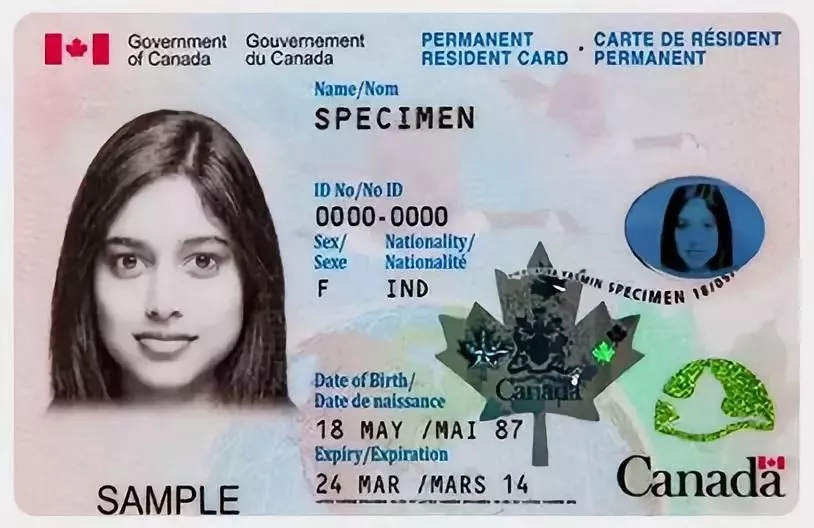PR Card Renewal Without Meeting Residency Obligation
PR Card Renewal without Meeting Residency Obligation
PR card renewal without meeting residency obligations poses significant challenges. When a permanent resident falls short of the required two out of five years of residency, denial of the renewal application becomes a looming possibility. This denial triggers severe consequences, including the loss of permanent resident status and subsequent inadmissibility to Canada. In such cases, individuals can explore renewing their PR cards on humanitarian and compassionate grounds, presenting compelling reasons for their inability to meet residency requirements. Navigating this process requires strategic planning, attention to detail, and often benefits from professional guidance to increase the likelihood of a successful renewal.
PR Card Renewal
A valid Permanent Resident (PR) card holder can return to Canada, presuming them as a permanent resident on entry. However, when it comes time to renew the card, meeting residency requirements becomes a crucial aspect.
To renew a PR card, you must provide a detailed account of your travel history to demonstrate compliance with residency requirements. If immigration authorities are satisfied with your adherence to residency obligations, a new card valid for an additional 5 years is issued. The processing of PR cards can be expedited for immediate travel needs as well.
Options if Residency Requirements Are Not Met:
If you fail to meet residency requirements during a PR card renewal or if the renewal attempt is denied, several options are available. One viable avenue is renewing PR cards on humanitarian grounds.
Renewing PR Cards on Humanitarian Grounds:
In situations where you will need to renew your PR card but have not met residency requirements, applying on Humanitarian and Compassionate grounds is an option. This involves explaining extenuating circumstances preventing the fulfillment of residency obligations.
Humanitarian & Compassionate Grounds Explained:
Humanitarian and Compassionate grounds encompass mitigating factors demonstrating a compelling reason for the inability to stay in Canada for at least 2 years out of 5. For instance, caring for an elderly or sick relative could be considered a humanitarian and compassionate factor. The immigration authorities also evaluate the best interests of any affected child in the decision-making process. Some might not be able to meet the residency requirements due to employment reasons.
Documents for PR Card Renewal with H&C Arguments:
To demonstrate humanitarian and compassionate reasons for not meeting residency obligations during Permanent Resident (PR) card renewal, you can provide a range of supporting documents. These may include:
- Personal Statements: A detailed personal statement outlining the circumstances that prevented you from meeting residency requirements. This statement should articulate the compelling reasons on humanitarian and compassionate grounds.
- Reference Letters: Letters from credible sources, such as community leaders, employers, or professionals, supporting your claim of humanitarian and compassionate reasons for not meeting residency obligations.
- Medical Documentation: If the reasons are health-related, providing medical records, diagnoses, and statements from healthcare professionals can strengthen the case.
- Legal Documents: If legal issues, such as custody battles or family disputes, are contributing factors, relevant legal documents and court orders can be included to provide context.
- Affidavits: Sworn affidavits from individuals with firsthand knowledge of the circumstances can lend credibility to the humanitarian and compassionate claim.
- Photographic Evidence: Visual documentation portraying the situation, such as photographs of family members in need of care or living conditions, can complement the narrative.
- Supporting Letters: Letters of support from friends, family, or community members attesting to the applicant’s character and the validity of their humanitarian and compassionate reasons.
- Financial Documents: If financial hardship is a contributing factor, providing evidence of income, expenses, and any financial challenges can be relevant.
It’s crucial to present a comprehensive and coherent case, emphasizing the specific circumstances that align with humanitarian and compassionate grounds.
Not Meeting Residency due to Employment Reasons:
PR card renewal challenges due to employment-related reasons often arise when permanent residents find themselves unable to meet the residency obligations due to work commitments abroad. In such cases, individuals can provide documentation illustrating the employment-related nature of their absence. This may include employment contracts, letters from employers, and other relevant work-related documents. Explaining how the employment situation was beyond the individual’s control and emphasizing the positive impact of their work on Canadian interests can strengthen their case.
Not Meeting Residency due to Family Emergency:
PR card renewal complications stemming from family emergencies may emerge when permanent residents face challenges in fulfilling residency obligations due to unforeseen familial crises. In these scenarios, individuals have the option to furnish supporting documentation, including medical reports, letters from healthcare professionals, or legal documents pertinent to the family emergency. Articulating the unique nature and time-sensitive aspects of the situation, along with elucidating the individual’s pivotal role and responsibility in providing support, fortifies the case for humanitarian and compassionate grounds.
Not Meeting Residency Due Unforeseen Circumstances:
PR card renewal hurdles may surface when unforeseen events, like the global COVID-19 pandemic or a family member’s demise, disrupt a permanent resident’s ability to fulfill residency requirements. To address these situations, individuals can submit supporting documents such as death certificates, medical records, or evidence of travel restrictions imposed by the pandemic. Effectively communicating the unanticipated nature of these occurrences and elucidating their direct impact on the individual’s residency maintenance enhances the case for humanitarian and compassionate grounds, providing a nuanced perspective on the challenges faced.
PR TRAVEL DOCUMENT (PRTD):
A Permanent Resident Travel Document (PRTD) serves as a temporary travel document for permanent residents of Canada who are outside the country and need to return to Canada but do not have a valid PR card. To qualify for a PRTD, individuals must hold permanent resident status in Canada, demonstrate their intention to return to Canada as a permanent resident, and provide evidence of their status and residency.
To submit a PRTD application, individuals must complete the appropriate application form, gather supporting documents such as proof of permanent residency, travel history, and any relevant immigration documents, and pay the required fee. The application can be submitted online through the Immigration, Refugees and Citizenship Canada (IRCC) website or through a visa application center, depending on the country of residence. This application should be applied by clients who meet the residency and simply have an expired PR card.
Once the application is submitted, it will be processed by IRCC, and if approved, the individual will receive the PRTD allowing them to return to Canada as a permanent resident. It’s important to note that individuals should apply for a PRTD well in advance of their intended travel date to allow for processing time.
PR TRAVEL DOCUMENT WITH HUMANITARIAN AND COMPASSIONATE ARGUEMENTS (PRTD):
In situations where individuals are permanent residents of Canada but find themselves outside the country without a valid PR card and unable to meet the residency requirements, a Permanent Resident Travel Document (PRTD) can be pursued using Humanitarian and Compassionate (H&C) arguments.
Humanitarian and Compassionate grounds provide a discretionary option for individuals facing exceptional circumstances that prevent them from meeting the residency requirements. In the context of a PRTD application, H&C arguments could include demonstrating compelling reasons for not meeting the residency obligations due to unforeseen and uncontrollable circumstances, such as medical emergencies, family crises, or other humanitarian reasons.
To apply for a PRTD with H&C arguments, individuals need to submit a comprehensive application outlining their unique circumstances, the reasons for their prolonged absence from Canada, and any supporting documentation that strengthens their case. This could involve medical records, legal documents, or detailed personal statements explaining the humanitarian and compassionate factors that led to the extended stay outside Canada.
While applying for a PRTD based on H&C grounds, it’s crucial to emphasize the exceptional nature of the circumstances and how they align with the principles of compassion and humanity.
Navigating the Renewal Process:
Navigating the PR card renewal process involves meticulous attention to detail and adherence to immigration regulations. Permanent residents facing challenges meeting residency requirements must strategize their approach to ensure a successful renewal application. Seeking professional guidance becomes crucial in understanding the nuances of humanitarian grounds and presenting a compelling case. At Akrami & Associates Immigration Law firm, we have over 15 years of experience dealing with PR Card Renewals. Contact us today so we can discuss your unique matter.
Role of Immigration Professionals:
Engaging the services of immigration professionals can significantly enhance the chances of a successful PR card renewal. Our Immigration lawyers and consultants can provide valuable insights, thorough reviews of documentation, and strategic guidance on presenting a strong case on humanitarian and compassionate grounds.
The process of renewing a PR card is a critical step for permanent residents, and meeting residency requirements is paramount. When faced with challenges in fulfilling these obligations, exploring options like humanitarian and compassionate grounds becomes crucial. The subjective nature of the decision-making process emphasizes the need for a well-constructed and compelling case. Navigating PR card renewal with professionalism and expertise ensures a smoother journey for individuals striving to maintain their permanent resident status in Canada.
Connect with us on our social media channel:
https://www.tiktok.com/@shabnam_thevisa.ca
https://www.facebook.com/AkramiAssociates
Call us at 416-477-2545 | 1-877-820-7121 416 477 2570 | 1 877 622 8182 Email: Info@thevisa.ca
Latest Immigrations News

December 5, 2025
THE ULTIMATE GUIDE TO HUMANITARIAN & COMPASSIONATE (H&C) APPLICATIONS IN CANADA
THE ULTIMATE GUIDE TO HUMANITARIAN & COMPASSIONATE (H&C) APPLICATIONS IN CANADA Understanding When, Why, and How to Apply for Permanent Residence on Humanitarian Grounds What Is an H&C Application? A Humanitarian and Compassionate (H&C) application is a last-resort pathway for individuals who are in Canada and do not [...]

September 11, 2025
Canada Super Visa: Step-by-Step Guide for Parents and Grandparents
For many Canadian citizens and permanent residents, bringing parents or grandparents to Canada for extended visits is more than just a wish, it’s a heartfelt need. While most people first consider the traditional visitor visa, there is another option designed specifically for family reunification: Super Visa applications. [...]

August 23, 2025
Intra-Company Transfer (ICT) Work Permit, Your Complete Guide to Working in Canada
For multinational companies, moving key talent across borders is often essential for growth and operational success. The Intra-Company Transfer (ICT) Work Permit provides a streamlined pathway to bring experienced employees to Canada without the time-consuming Labour Market Impact Assessment (LMIA) process. For foreign professionals, it’s more than [...]

Book a Conslutation
One of our Representatives will
assist you with your matter. Book Now!
Click here

Call us for
more Information
+1-416-477-2545
Toll Free: 1-877-820-7121
Click here

Write Us (Online Form)
Complete our form and one of our
Representatives will contact you.
Click here
Subscribe To Our Newsletter


